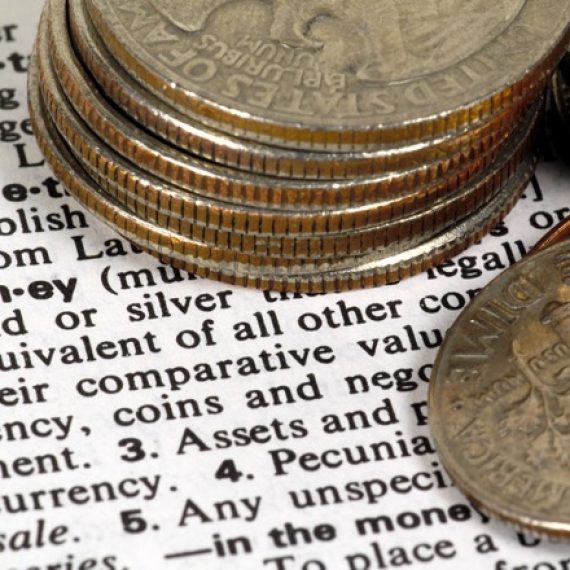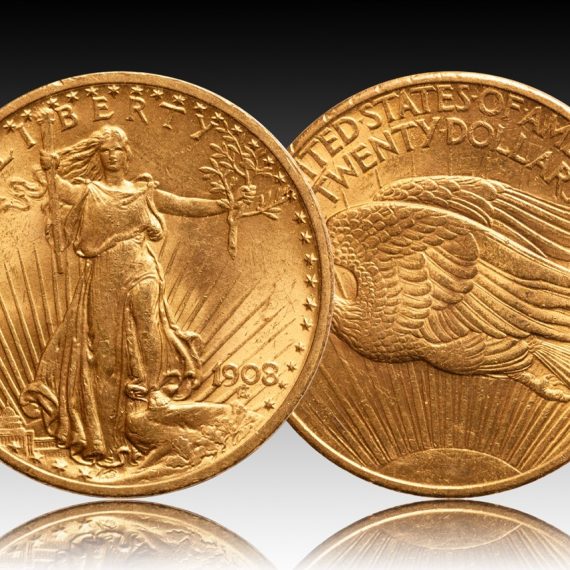April 7, 1997 – Cult TV stars Mulder and Scully never had a case as bizarre as this one. Even though aliens have not yet landed in the jungles of Kalimantan, Indonesia, the saga of Bre-X Minerals is about as strange as they come.
Having looked deeply into Bre-X many times over the past two years or so, I thought that this company’s scope of operation at its Busang property was fairly familiar to me. Needless to say, it wasn’t.
Few anticipated the chain of events that unfolded over the past two weeks, and I wasn’t among them. But let me say up front that I am an impartial observer – the Midas Fund, the precious metal mutual fund for which I act as Strategic Advisor, did not own Bre-X when it collapsed. In fact, Midas has never owned Bre-X, and earned the coveted #1 Morningstar rank for precious metal funds over 5-years performance without this former high flyer. That said, consider the bizarre case of Bre-X.
A once bankrupt Canadian broker and stock promoter uses his last C$10,000 to obtain mineral rights on an obscure property in the jungles of Kalimantan, which had previously been explored but passed over by some major companies. He teams up with an intelligent but eccentric Dutchman who has probably spent more time in the jungle than in civilization, and years ago was part of the team of geologists who discovered the prolific Ok Tedi mine in Papua New Guinea.
In this rags to riches story, stock that once could hardly be given away for C$0.28 per share, suddenly takes off into the stratosphere and in the course of two years zooms to C$290.- before splitting 10-for-1 as it becomes known to the world that Bre-X has discovered what looks like the mother lode in the remote Indonesian jungle. Dozens of early purchasers of the shares become multi-millionaires. But hang on, there’s more.
As the riches of this treasure trove at Busang become known, Bre-X becomes a target for all of those green with envy. Every one wants to get a piece of this grab-bag, and Bre-X had made itself vulnerable to a slaughter by proceeding too quickly with its exploration efforts before locking up its mineral rights in accordance with the well known steps required by Indonesian law – steps followed by every other mineral company operating in Indonesia. Bre-X also shoots itself in the foot by arrogantly flaunting its newfound riches in the face of the Indonesian government and its own Indonesian partners. Forced as a consequence to give up 45% of its treasure trove to secure its remaining position, Bre-X management attempts to mollify Bre-X shareholders by suggesting that 200 million ounces lay buried in Busang – implying that Busang is the biggest Gold find since the discovery of the Rand Reef in South Africa over one hundred years ago.
Because of Indonesian government intervention sparked partly in direct response to Bre-X’s own madcap and ill-advised ways, Freeport McMoran enters the scene, and is given the exclusive right to develop Busang. Freeport begins its due diligence by drilling randomly chosen holes in what is supposed to be the richest part of Busang. It begins by ‘twinning’ seven of the hundreds of holes already drilled by Bre-X. Yes, there’s still more.
At the peak of his fame and glory, a key geologist for Bre-X and co-discoverer of Busang commits suicide (allegedly, some still suspect he is alive) by jumping from a helicopter on his way to the mine site. The Internet then enters the scene, providing for the first time in history a flow of critical information important to investors and not available from normal channels.
By relaying to North America through various news and investment forums reports available in Indonesia that Freeport’s drilling had turned up insignificant amounts of Gold at Busang, the Internet wins the hearts of the investment community and proves that we are on the cutting edge of a startling evolution in media and communications. Freeport then confirms the reports appearing on the Internet by announcing that it found insignificant amounts of Gold. The stock of Bre-X falls 80% in one hour with volume so huge that it crashes the archaic computer system of the Toronto Stock Exchange, and triggers thousands of margin calls throughout North America. And now everybody is asking the one remaining unanswered question – is it fraud?
At this stage, we still don’t know for sure whether or not there is fraud, but the early indications are not good. The insignificant amounts of Gold reported by Freeport could in theory be the result of incorrect assaying procedures. Unlikely of course, but still possible.
In any case, we’ll no doubt learn more in the weeks and months ahead. Freeport is completing its due diligence investigations. And Bre-X has hired an independent specialist firm to audit its assay results. Somebody is wrong. Either the Gold is there, or it isn’t.
Some parts to this saga already seem clear. (1) Bre-X still has potentially more to lose than to gain. Any hint of fraud will cause it to be blacklisted in Indonesia, so it would in that case in all likelihood lose what remains of its interest in Busang. (2) Because of the relentless and indiscriminate margin selling after the Freeport announcement, many ‘babies were thrown out with the bath water’. In other words, we probably witnessed a selling climax in the resource stocks, so there are many good buys available for the knowledgeable investor. (3) Finally, investors will once again recognize that while the gains in resource stock investments may be huge, the risks can be huge as well.
Why didn’t Midas Fund ever purchase Bre-X? To make a long story short, Midas Fund uses a rigid selection criteria. This formula has been in place since my partner, Kjeld Thygesen, took over responsibility for managing Midas in January 1992. And Bre-X never met the rigid selection criteria.
Are we infallible? No, of course not. No one is. But side-stepping the Bre-X fiasco does speak volumes about the usefulness and the value of the selection criteria we apply against each investment made by Midas.
For many months Bre-X has been routinely described as a “world class” ore body. In fact, this superlative has been used to describe many aspects of the company and its operation. And perhaps the term still applies – it has been a world class saga, and it may yet prove to be a world class ending, because the final chapter has not yet been written.

 My objective is to share with you my views on gold, which in recent decades has become one of the world’s most misunderstood asset classes. This low level of knowledge about gold creates a wonderful opportunity and competitive edge to everyone who truly understands gold and money.
My objective is to share with you my views on gold, which in recent decades has become one of the world’s most misunderstood asset classes. This low level of knowledge about gold creates a wonderful opportunity and competitive edge to everyone who truly understands gold and money.
